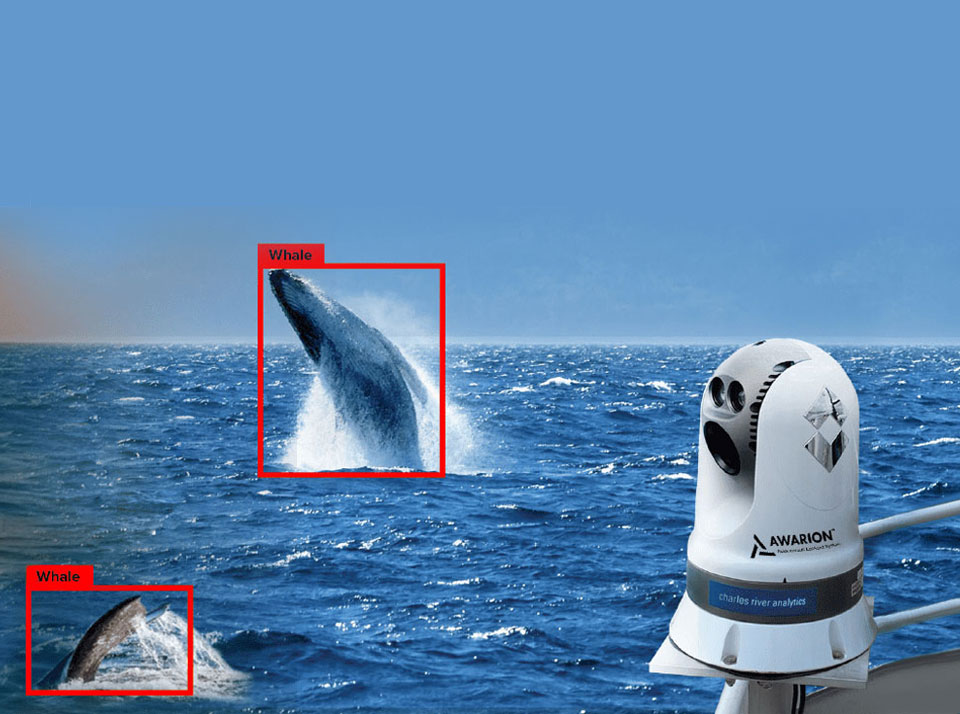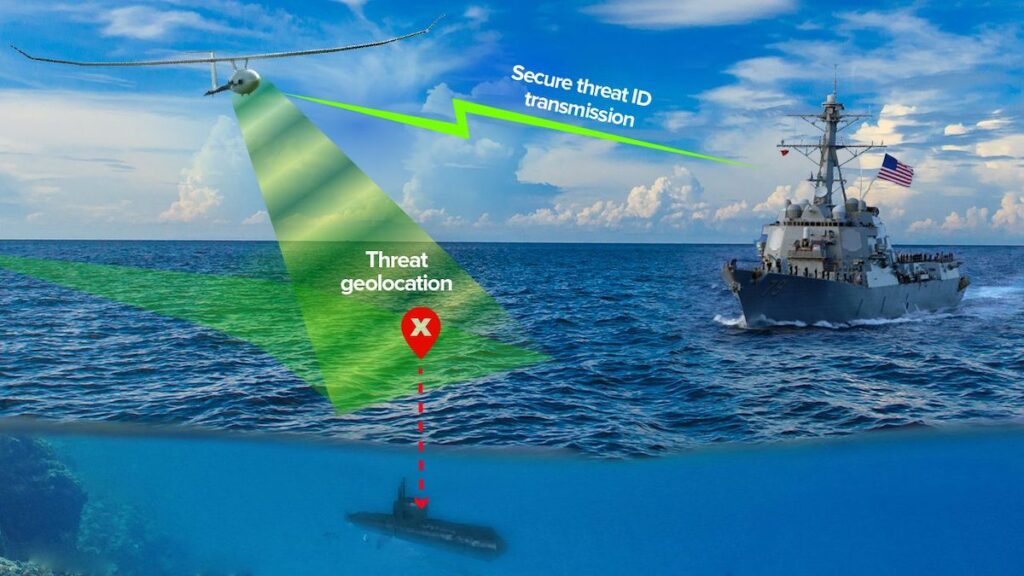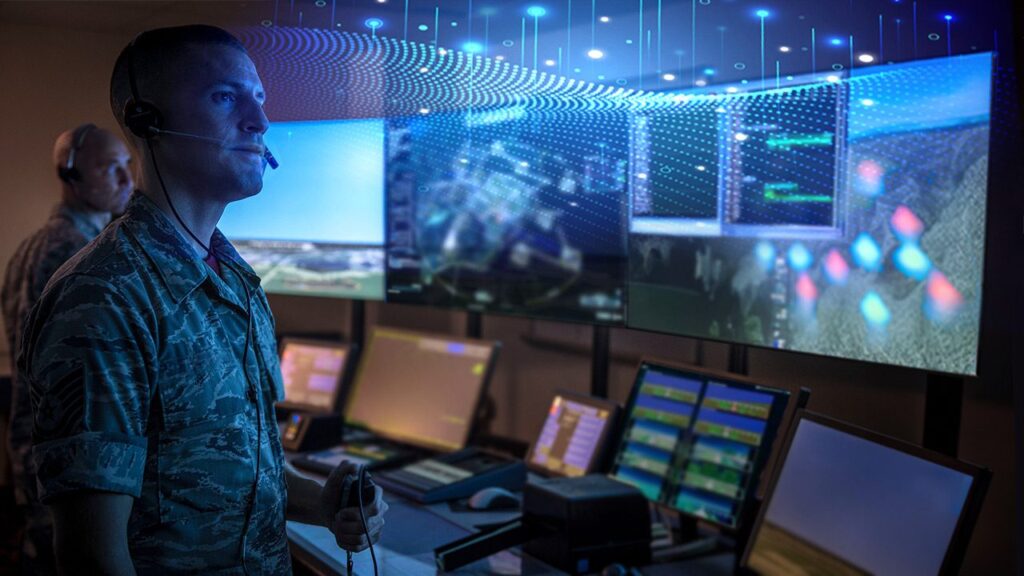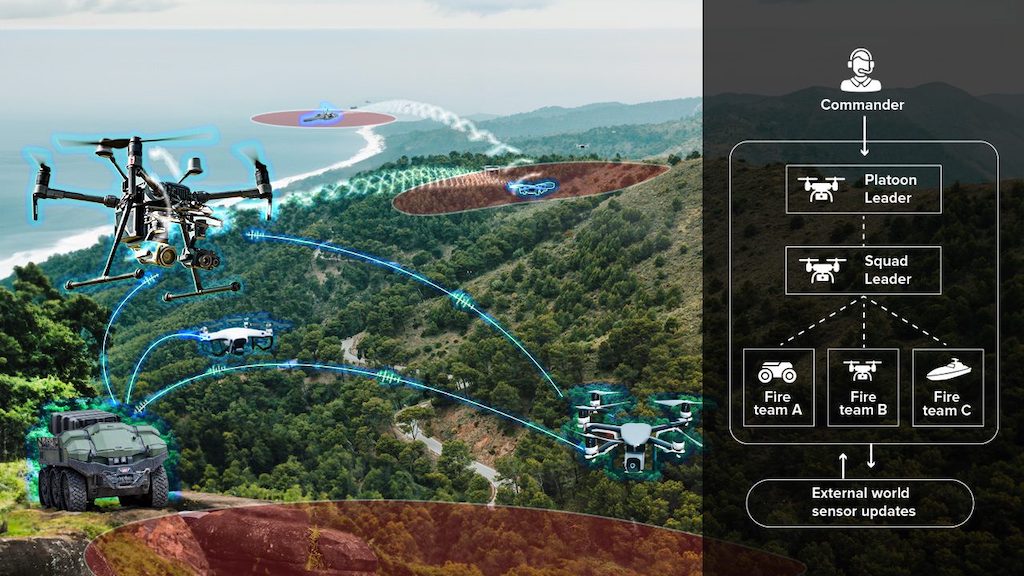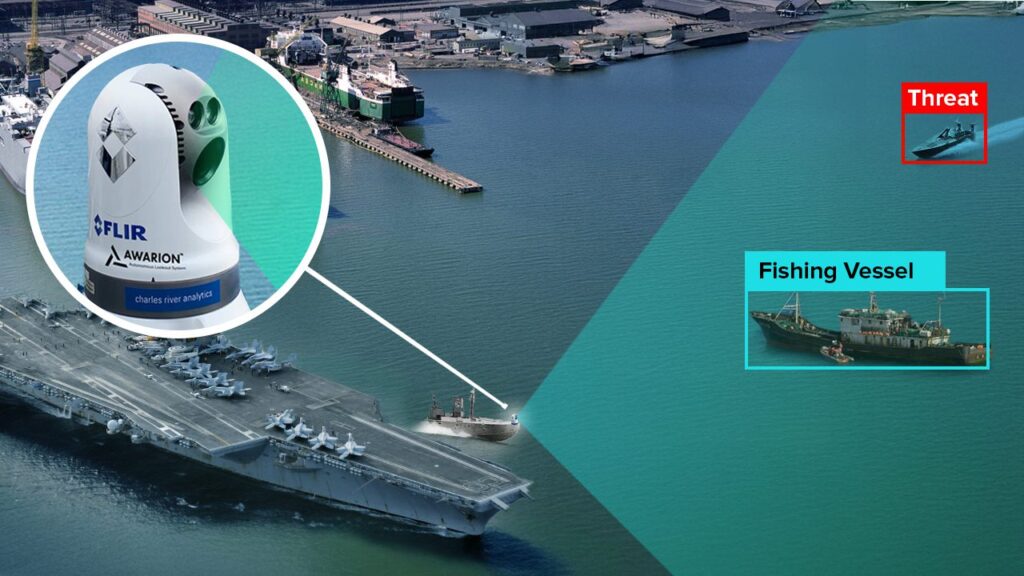
Charles River Analytics’ Perception Autonomy for Vessel Escorts (PAVE) system automates the escort of high-value naval assets, reducing personnel requirements and increasing speed and safety in crowded harbors.
This Small Business Innovation Research (SBIR) Phase II contract is sponsored by the Naval Sea Systems Command.
While PAVE is not the first of its kind, current perception software for uncrewed surface vessels (USVs) is generally unable to conduct precise tracking of small or fast-moving vehicles, particularly in crowded harbor environments. These systems also struggle to characterize potential threats effectively.
PAVE builds on Awarion®, Charles River Analytics’ artificial intelligence (AI)–powered autonomous lookout system, which complements and supports human watchstanders and marine radar systems for collision avoidance on the open seas.
Ross Eaton, Principal Scientist, Director of Marine Systems, and Awarion product lead at Charles River, stated, “Awarion detects, analyzes, and reports on the presence of whales, vessels, and other maritime objects in the open ocean, but we can adapt it to perform well in more crowded harbor scenarios. With PAVE we can not only understand what and where something is, we can also make inferences about what that other boat might be doing so we can alert the appropriate personnel as needed.”
In addition, PAVE will be able to estimate the distance to the various objects it detects. It uses electro-optical (EO) and infrared (IR) detection technologies to “see” objects during both day and night.
In a busy harbor, there is often a great deal of activity in both the foreground and background. While humans can easily distinguish between objects such as buildings and boats, the abundance of signals can confuse algorithms. Achieving human-like perception in computer vision is a key challenge that PAVE aims to address. This is why, after successfully demonstrating the system’s feasibility in Phase I, Phase II will focus on providing PAVE with a broader set of harbor-specific learning data, including new categories such as piers and buildings.
Charles River expects that the full-scope, PAVE-enabled smart camera will provide immediate benefits for the Maritime Expeditionary Security Force (MESF), as they continue to develop their uncrewed escort capabilities.
Eaton continued, “We’re launching a more concerted effort to collect additional data that has more crowded backgrounds and congested scenes. Instead of having different people on different boats with all of them having only a partial view of the world, we’re building a cohesive picture, which will alert and issue warnings when something deserves a closer look. It makes the response more coordinated and faster.
“We want to leverage the strength of the human and automation to make an overall system that is as efficient as possible. I’m especially excited about PAVE because it demonstrates that we can meet and address a specific customer need and we can provide it faster and more affordably than they otherwise might have been able to access.”


